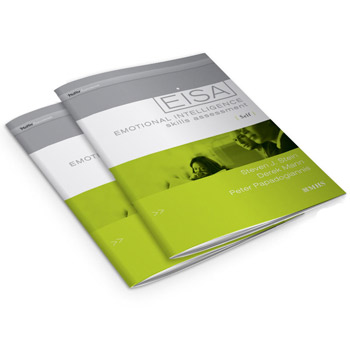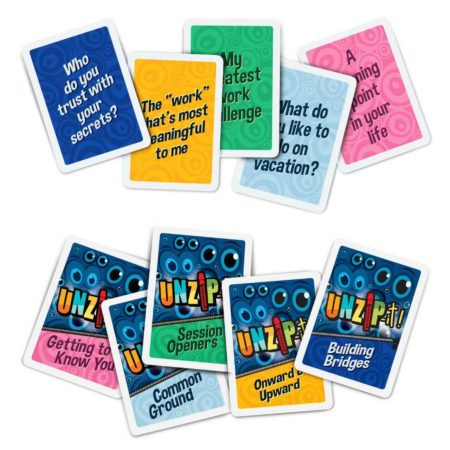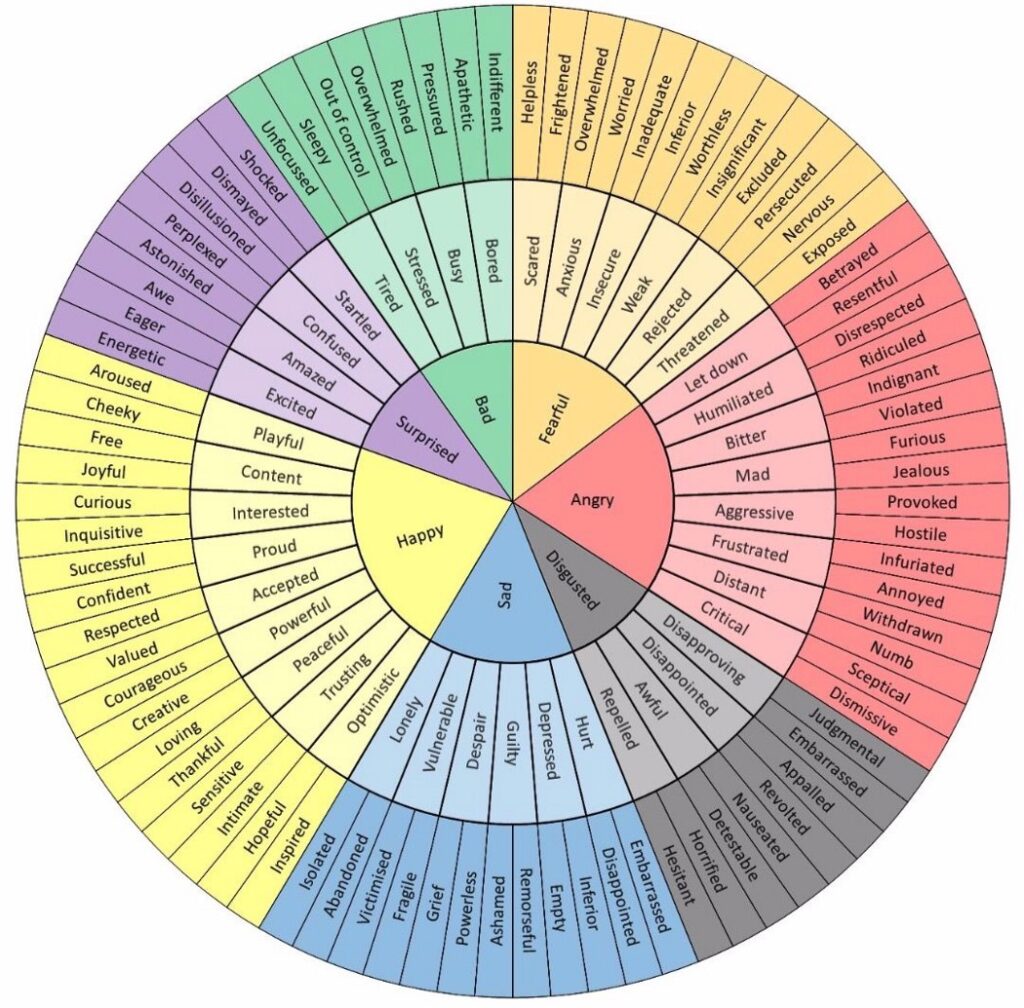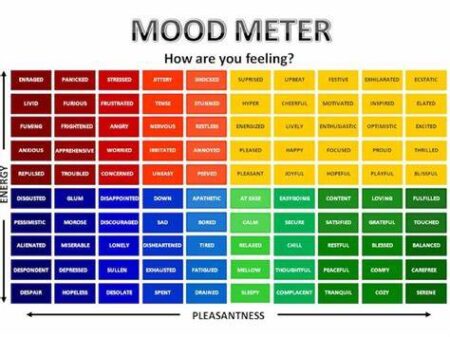Home » EXERCISES & ACTIVITIES » Emotional Intelligence Activities & Exercises
Emotional Intelligence Activities & Exercises
Emotional intelligence is one of the most challenging leadership skills to develop. Coaches and trainers appreciate the importance of developing Emotional Intelligence (EQ or EI), but struggle with the best ways to do it. Drawing on the tools and expertise of EQ specialists, a wide range of emotional intelligence activities and emotional intelligence exercises, are now available. We’ve curated the best tools we could find, so the only challenge now is selecting and adapting these tools to your needs.
Daniel Goleman: The father of EQ
Most emotional intelligence group exercises conducted today are built upon Daniel Goleman’s groundbreaking work in the 1990s. He explained the importance of EQ and defined its framework in terms of these five components:
- Self-Awareness
- Self-Regulation
- Social Skills
- Empathy
- Motivation
To develop your team’s Emotional Intelligence, consider this range of five types of emotional intelligence activities, and find options for each below:
- Self-Assessment Tests
- Conversation Starters
- Photo IDs
- Role Plays
- Skill Development Games
- Developing a Vocabulary of Emotions
1. EI/EQ Self-Assessment Tests
An assessment is a great way to start all types of emotional intelligence games, exercises, and activities. Several self-assessment tests are available for purchase:
-
 Emotional Intelligence Skills Assessment Facilitator’s Set (EiSA): This EiSA set includes everything a trainer, facilitator, or team manager will need to conduct EI assessments with their groups:
Emotional Intelligence Skills Assessment Facilitator’s Set (EiSA): This EiSA set includes everything a trainer, facilitator, or team manager will need to conduct EI assessments with their groups:
- Facilitator Guide
- PowerPoint Presentation on Flash Drive
- Sample Self-Assessment
- Sample Participant Workbook
- BlueEQ: The BlueEQ was developed by social and behavioral scientists, instructional psychologists, and psychometricians for use by organizations and individuals. It is comprehensive and very well regarded.
2. Conversation Starters
- Thumballs – During these emotional intelligence activities, participants toss a ball imprinted with conversation prompts and ask recipients to respond to the prompt under their thumb. Emotional Intelligence starts with understanding and listening to those around you. Use the balls to initiatiate get-to-know-you discussions, or talk more deeply about trust, change managment, and common ground. After listening to a player’s response, discuss the unspoken emotions they expressed as they spoke. The EQ Thumball Set has an assortment of 5 balls to promote discussion through your emotional intelligence workshop. If you prefer a deck, the UNZiP-IT! Decks offer similar prompts but are conducive to a quieter activity. And, if you’re working remotely, try the convenient PowerPoint-base UNZiP-IT! Remote Sets or Trainers Exchange, an online conversation-starter experience.
- Emotional Intelligence Thumball: Each conversation prompt on the Emotional Intelligence Thumball indicates the skill with which it is associated. Use the two-letter EQ skill codes (MO, SA, SR, EM, and SS), to build awareness of the skills, while building the skills themselves! For example:
- “What contributes to distrust?” is followed by [EM] for Empathy
- “How could someone regain composure after snapping?” lists [SR] for Self-Regulation
- “What holds you back from being your best YOU?” has [SA] for Self-Awareness
3.  Photo IDs for Emotional Intelligence Activities
Photo IDs for Emotional Intelligence Activities
- Conversation Decks – Photo Decks offer loads of images that evoke emotion. To build an EQ vocabulary have players select a card and discuss the emotions that it suggests. Favorites include Express Pack, View Changer Cards, and WeEngage Cards.
- Feelings Decks – Innovative Resources has a bundle of card decks, such as Stones Have Feeling Too, The Bears, and Funky Fish Feelings that illustrate a range of emotions. Choose a card and discuss the emotions it reflects. Alternatively, ask players to choose a card that illustrates how they feel now or how they felt when they woke up this morning.
- Assertive – Passive – or Aggressive? – One of our LinkedIn group members suggests the following emotional intelligence activities: “If you are exploring emotional intelligence in customer service, I have designed an activity of placing images of individuals displaying various emotions and ask the learners in groups to determine whether the image is assertive, passive or aggressive. This social learning activity on emotional intelligence can then be developed for customer service agents by asking how that customer would sound via phone, and how they would deal with those particular behaviours. It always creates a starting point for looking at customer experience.” ~ Katrina Felgate
4. Role Play Dealing with Impulsive Reactions
One trigger of emotional intelligence issues involves the ability to control impulsive reactions. One LinkedIn writer suggested these easy role-play scenarios, which we’ve embellished a little bit. For these emotional intelligence activities, feel free to use a scenario below or customize one based on your own experiences. First, have participants discuss in groups of 2 or 3, then open the discussion up to the larger group:
- Hassan brings a Tomato. Toni bangs on the tomato, getting herself (and Hassan) dirty. How might Toni respond?
- Tanisia rides her bike on the wrong side of the street. To avoid a collision, she abruptly stops in front of Roberto’s car. Roberto stops short in front of her, spilling hot coffee and papers all over the car. How might Roberto react?
- Carson attends his performance review meeting. His boss brings up a past incident of insubordination that was never previously mentioned or addressed. Still, the boss presents Carson with a formal notice that will go in his personnel file and prevent him from getting a year-end bonus. ~ Santhanam Chakravarti
5. Emotional Intelligence Activities & Games
- EQ GAME – This amazing emotional intelligence group exercise lets players practice emotional intelligence skills! Players pick an EQ Game Situation Card and read it aloud (the game includes 50 of these Situation Cards). Next, players choose a Self-Awareness Card that describes how they’re feeling. They also play a few EQ Skills Cards (Self-Management, Social Awareness, or Relationship Skills), which might help them deal with the sticky situation. The goal of the EQ game is to provide practice in emotional intelligence skills. The Deck includes:
- Situation Cards (50): Self-Awareness/Self-Management focused situation, followed by 2 questions; Social Awareness / Relationship Skills situation, followed by 4 questions.
- Response Cards (54): Self-Awareness Cards and EQ Skills Cards (60 color-coded cards for Self-Management, Social Awareness, and Relationship Skills)
- In addition, trainers who may want quick emotional intelligence activities for a larger group of up to 25 participants, the Situation Cards can be used by themselves. The game has enough Situation Cards for up to 25 people, who can work in groups of 4-6 to discuss the situations described on the cards and figure out the emotionally intelligent way to respond.
- Developing Emotional Intelligence Coaching Cards – The Developing Emotional Intelligence Coaching Card Deck encourages reflection and discussion of self-awareness and self-development. Use the deck to effectively develop your team’s emotional intelligence, during training courses and workshops. This deck, specifically designed for emotional intelligence exercises, includes:
- 48 cards arranged in 4 colored suits to correspond to the emotional intelligence model.
- 4 summary cards unique to this product range.
- 3 set-up and suggested use cards to get you started with the emotional intelligence activity.
- A unique emotional intelligence matrix direction picture card to illustrate the EQ journey.
- Pocket-sized deck in a protective case to go everywhere with you

- Create emotional discomfort in team games – You may be able to convert a familiar team-building game into an EQ development game by building in limitations that will add challenge or stress. Then, when debriefing the exercise, you can discuss the emotions or frustrations they may have experienced, and develop a vocabulary for those feelings. For instance, you might:
- Blindfold some of the players during a game
- See if they can complete a task with only non-verbal communication
- Limit the time they have to complete a task
6. Developing a Vocabulary of Emotions (EQ Wheel of Emotions – source unknown)
One of the top challenges is to develop a vocabulary of emotions and feelings. Two models for understanding emotional intelligence are the Wheel of Emotions and the Emotions Grid.
- Wheel: Ask “How are you feeling?” – See how many people instinctively reply, “fine.” Then show them an adaptation of the Robert Plutchik Wheel of Emotions and ask how they REALLY FEEL. We have so many words to describe feelings, encourage your group to find the words that reflect their true emotions.
 Matrix: On an emotional Mood Matrix you find Intensity or Energy on one axis, and Pleasantness on the other. Emotions are sorted in this manner. Several card decks of emotions identify emotions according to these quadrants including Playmeo’s Emoji Deck and the Emotions Card Deck.
Matrix: On an emotional Mood Matrix you find Intensity or Energy on one axis, and Pleasantness on the other. Emotions are sorted in this manner. Several card decks of emotions identify emotions according to these quadrants including Playmeo’s Emoji Deck and the Emotions Card Deck.
Building EQ
Remember, any effort you put in to develop Emotional Intelligence will be well worth your time. According to Dan Goleman’s book, Emotional Intelligence: Why It CanMatter More than IQ, high “EQ” is associated with better decision-making and greater profitability.
- Decision Making – High EQ leaders engage their teams more effectively, improve the culture and communication in their workplace, and achieve better results.
- EQ Pays – A study of 186 executives compared their EQ scores with their company’s profitability; the two were found to be directly correlated!
Read More about Emotional Intelligence Activities
PositivePsychology.com – tons of articles and activities for Emotional Intelligence
Conversation Decks – oodles of uses for photo decks
Why Emotional Wheels are Helpful – explore different wheels and ways to use them
45,565


 Emotional Intelligence Skills Assessment Facilitator’s Set (EiSA): This
Emotional Intelligence Skills Assessment Facilitator’s Set (EiSA): This  Photo IDs for Emotional Intelligence Activities
Photo IDs for Emotional Intelligence Activities
 Matrix: On an emotional Mood Matrix you find Intensity or Energy on one axis, and Pleasantness on the other. Emotions are sorted in this manner. Several card decks of emotions identify emotions according to these quadrants including
Matrix: On an emotional Mood Matrix you find Intensity or Energy on one axis, and Pleasantness on the other. Emotions are sorted in this manner. Several card decks of emotions identify emotions according to these quadrants including
Hey,
Hello, my name is Ashia and I’m a soft skills trainer and i want to improve myself more so i want to connect with you people.
Thanks
Hey My name is Paul aka the accidental trainer -really enjoyed this ariticle being emotionally aware is so important for trainers as we need to concentrate on the needs of our learners and not on our own
Another great game is E-IQ with https://www.drsjconsulting.com/e-iq-game
I Love this Post